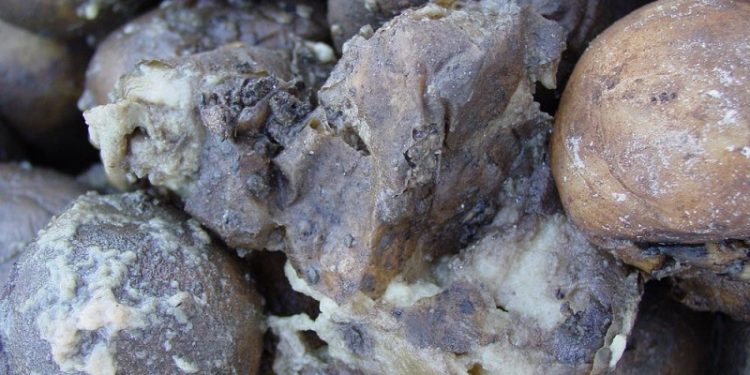@jorgeluisalonso
#potatotubers #softrotdisease #geneticallyengineeredbacteria #diagnostictool #volatileorganiccompounds (VOCs) #cropyields #post-harveststoragepractices
Potato tubers are susceptible to various diseases, including tuber soft rot, which can cause irreversible damage before visible symptoms occur. Current detection technologies are inadequate in identifying hidden diseases at an early stage, making the development of a sensitive diagnostic tool crucial. Researchers from the Volcani Institute, the Hebrew University of Jerusalem, and the Chinese Academy of Agricultural Sciences have developed genetically engineered bacterial strains that can detect specific volatiles that signal the presence of potato tubers infected with soft rot disease.
Using 1-Octanol, 2-phenylethyl alcohol, and 1-octen-3-ol, the team identified responsive promoters in E. coli. They then developed nine new bioreporter strains and tested them in various environments to detect VOCs. All strains, except oxyR, could detect differences between infected and uninfected potato tubers. Among the strains, dnaK was the preferred bioreporter for detecting Pectobacterium infection in whole potato tubers. It responded to all tested volatiles and exhibited the highest response differences in the presence of infection.
By monitoring the volatile profile of stored crops, bacterial detection of specific signatures could facilitate the timely detection of pathogens before visible disease symptoms occur. This breakthrough offers a more efficient and cost-effective solution for farmers and agronomists to prevent the spread of diseases and maintain high-quality crops.
The development of genetically engineered bacterial strains is a significant breakthrough in potato tuber detection. This new diagnostic tool can help farmers and agronomists detect the presence of soft rot disease at an early stage, facilitating timely prevention and treatment. This technology has the potential to revolutionize post-harvest storage practices and improve crop yields.







